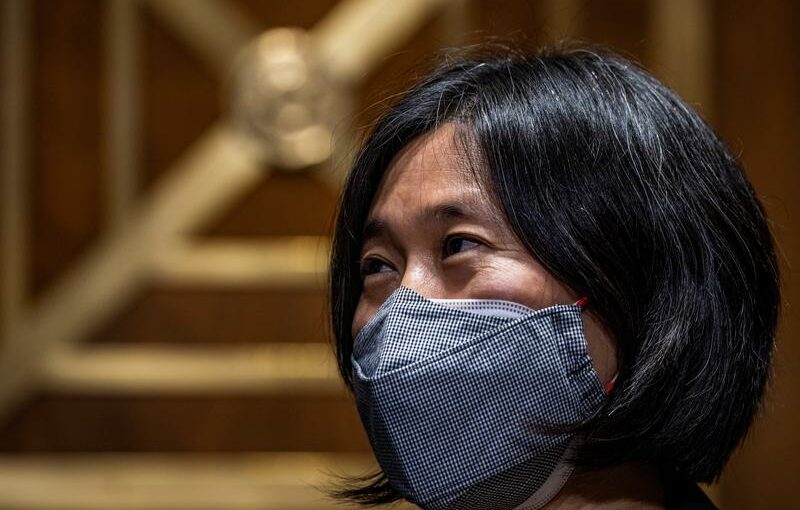WASHINGTON (Reuters) – Katherine Tai, President Joe Biden’s nominee for U.S. trade representative, on Thursday backed tariffs as a ‘legitimate tool’ of trade policy and called for tough enforcement of existing trade deals, including with China.
Tai mapped out her plans at a confirmation hearing before the Senate Finance Committee, underscoring her commitment to a worker-centered trade policy that treated Americans as “workers and wage earners, not just consumers.”
Tai, who served seven years as the Democratic trade counsel for the U.S. House of Representatives Ways and Means Committee, vowed to maintain a “healthy partnership” with Congress, and said she would work to rebuild strained ties with U.S. allies.
Tai, echoing the get-tough tone on China struck by other Biden nominees and officials, said Beijing needed to live up to its commitments under the Phase 1 U.S.-China trade deal signed in January 2020. China fell 42% short of meeting its commitments to buy additional U.S. goods and services in 2020, experts say.
“There are promises that China made that China needs to deliver on,” Tai said, adding that Washington needed to explore all of its options to push for needed structural changes in China to make the world’s two largest economies more compatible.
Tai, who previously served as USTR’s head of China trade enforcement, told senators that the United States needs a “strategic and coherent plan” for holding China to its trade promises and competing with Beijing’s state-directed economic model.
“China is simultaneously a rival, a trade partner and an outsized player whose cooperation we’ll also need to address certain global challenges,” Tai said. “We must remember how to walk, chew gum and play chess at the same time.”
Achieving this, she said, would require stronger, more resilient U.S. supply chains and investments in people and infrastructure to boost American competitiveness.
“We must also impart the values and rules that guide global commerce – and we must enforce those terms vigorously,” Tai said.
‘IMPORTANT STEP’
She said she would prioritize enforcement of the U.S.-Mexico-Canada trade agreement, which she helped renegotiate in 2019 as trade counsel for the House Ways and Means Committee to include tougher labor and environmental standards.
She said the deal marked an “important step in reforming our approach to trade” and its success was vital.
Tai’s testimony has been anxiously awaited for months by industry, U.S. trading partners from Beijing to Brussels, labor groups and lawmakers – all lining up to lobby the Yale- and Harvard-educated daughter of immigrants from Taiwan.
After former President Donald Trump’s “America First” trade stance upended decades of trade liberalization efforts and heaped tariffs on hundreds of billions of dollars of U.S. imports, many of these groups are pleading for a return to a more traditional view of trade as an engine of growth.
The U.S. Chamber of Commerce on Wednesday called on Tai to back away from the “blunt instrument” of tariffs.
As the trade “czar” for the world’s largest economy, biggest importer of goods and second-largest exporter after China, Tai will wield immense clout.
If confirmed, she faces a long list of disputes left over from the Trump administration, from tariffs on steel and aluminum, aircraft and wine to threatened duties over digital services taxes and China’s lagging U.S. goods purchases.
Source: Read Full Article
